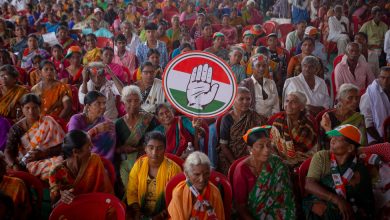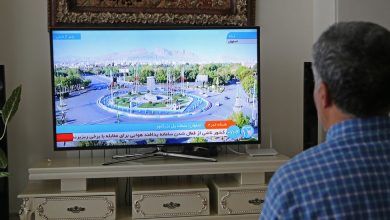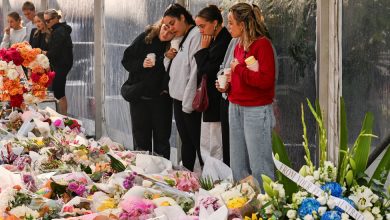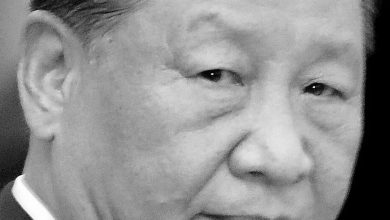Support for Tunisian President Looks to be Slipping After Parliament Vote
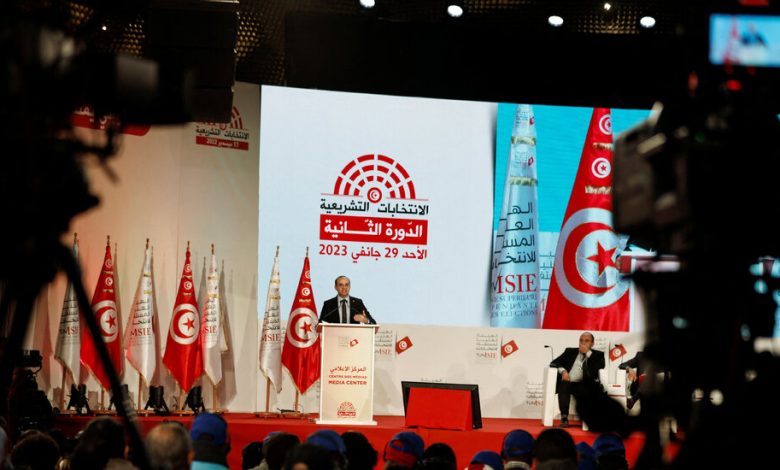
Tunisia, the only Arab country to emerge from the Arab Spring protests of more than a decade ago with a democracy, has not had a Parliament since its president suspended the assembly and established one-man rule in July 2021.
But when the names of the North African country’s newly elected members of Parliament were finally announced on Tuesday, after two rounds of voting, it did not seem like a comeback for democracy. In the end, perhaps what the election results signaled most strongly was fast-fading support for President Kais Saied.
Only 11.4 percent of eligible voters cast ballots in the runoff on Sunday, only slightly more than the 11.2 percent in the first round — the lowest turnout in any global election in decades, according to Max Gallien, a political scientist at Britain’s Institute of Development Studies. At least two of the president’s loudest supporters lost their bids, though several others won.
“The loss of people who claim to be close to Saied is another indicator of the shallowness of the political project he is advancing: no vision, no strategy, no team,” said Youssef Cherif, a political analyst who directs the Columbia Global Centers in Tunis.
Banking on his initial widespread popularity, Mr. Saied rewrote Tunisia’s post-Arab Spring Constitution last year, giving himself sweeping authority and demoting Parliament to an advisory body, stripping much of its power. He also issued a new electoral law banning political parties from involvement in the election, so that voters chose individual candidates rather than voting for party lists as they had done in previous elections.
As a result, Parliament was set to be a patchwork of individuals without party affiliations, platforms or agendas to hold them together. The very fact that the winners participated, however, signaled a degree of support for the president: It meant they were willing to at least lend some legitimacy to his new program. Opposition groups boycotted the election.
The parliamentary elections were widely seen as a gauge of what Tunisians thought of his plans, and of whether Mr. Saied was sincere about preserving Tunisian democracy, as he had pledged to do. On both, critics and analysts charged, Mr. Saied fell flat.
In some districts, only one candidate ran, negating the need for any runoff at all. Women won just 25 of the assembly’s 161 seats, according to Tunisia’s electoral authority, compared with 68 who held seats in 2014. Mr. Saied now controls the elections authority after replacing its formerly independent board.
The election of a new Parliament was supposed to be the next step in Mr. Saied’s plan to remake the country’s political system, one that he claims will be a truer, more direct democracy. In reality, it has put nearly all power in his hands, unchecked.
Far from saving the country from economic and political crises, as many hoped he would after he seized power, the president has offered few solutions as Tunisia staggers through a downturn that has left shelves bare of basics such as sugar and bottled water, families hard-pressed to feed themselves and the government unable to pay salaries.
Disenchantment with Mr. Saied’s handling of the economy appeared to be major factor in the meager turnout in July’s constitutional referendum, where about 30 percent of voters approved the president’s new Constitution.
Mr. Saied had called on supporters to vote for the new charter, but after announcing the date of the parliamentary election — the first round was in December — Mr. Saied did little to promote the vote.
That, Mr. Cherif said, “confirms that he sees little interest in parliamentary democracy.”
Mr. Saied has never been shy about his contempt for Parliament.
“Approximately 90 percent didn’t take part in voting because the Parliament, for them, doesn’t mean anything anymore,” he said in a meeting with his prime minister on Monday, according to a video his office posted on Facebook.
He had a point.
Many Tunisians continue to blame the political parties who dominated Parliament over the last decade for stymying Mr. Saied’s reforms, giving him an opening to ban them from the electoral process. Anti-Saied protests remain limited.
Though reliable polling is also scarce, the president’s political opponents appear even more unpopular than he is, leaving Tunisians stuck between two unpalatable choices.
Still, growing numbers have expressed fear of Mr. Saied’s increasing authoritarianism as the president prosecutes and jails critics. A political activist, Chaima Issa, was questioned last week by a military judge over critical comments she made about Mr. Saied on the radio, while a former prime minister from a major opposition party, Ali Laarayedh, was imprisoned in December.
Yet the outcry over Mr. Saied’s rollback of rights and freedoms Tunisians won after the 2011 Arab Spring uprising has remained limited — apart from members of the opposition, who used the flop of the elections to call for Mr. Saied’s resignation and early presidential elections to replace him.
“The results show that 89 percent of Tunisians have ignored this charade,” Ahmed Najib Chebbi, a veteran politician who leads the National Salvation Front, a coalition of opposition factions, said at a news conference after the runoff vote.
